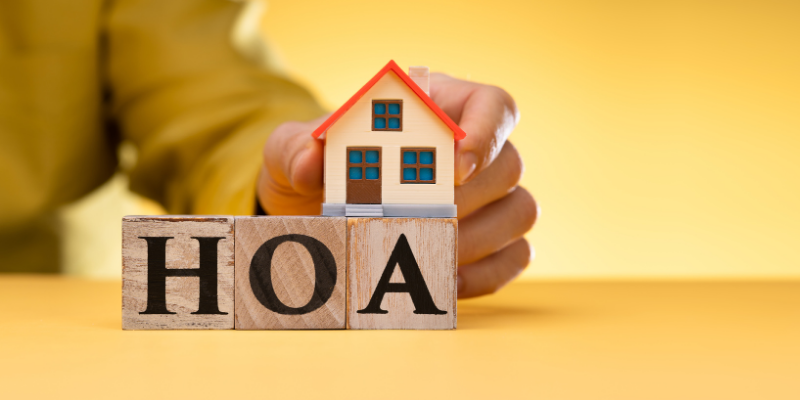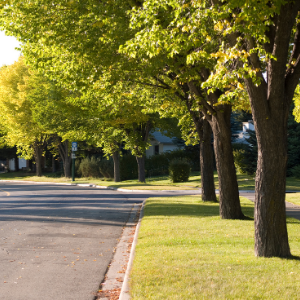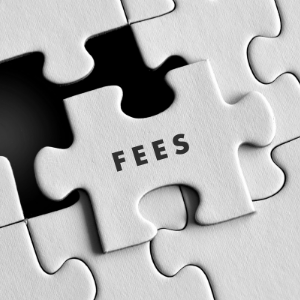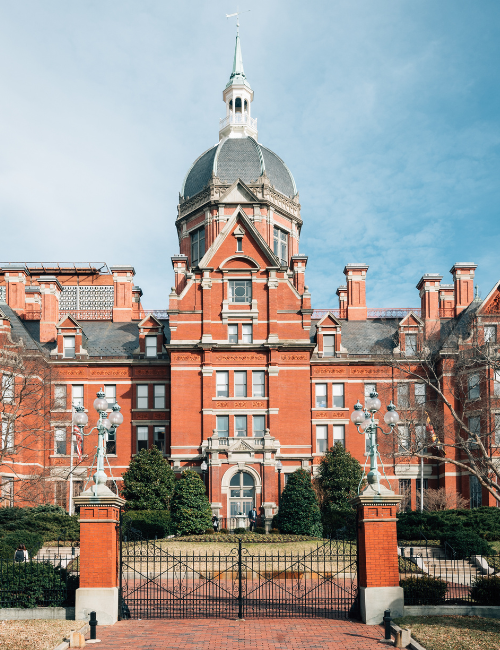
Understanding HOA Fees in Baltimore, Maryland
In Baltimore, Maryland, homeowner association (HOA) fees have become critical for homeowners looking to understand their financial commitments in communal living. These fees are essential for sustaining the shared amenities and common areas that improve the quality of life in many Baltimore communities.
HOA costs often cover a variety of services, including landscaping, security, common area upkeep, and, in some cases, utilities. As Baltimore grows, more communities use HOA models to manage shared resources effectively.
Homeowners should be aware that these fees may vary depending on several criteria, including the community’s size, the property’s age, and any planned additions or repairs. Additionally, economic situations such as inflation or changes in local legislation can impact HOA budgets, resulting in fee structure revisions.
Understanding these relationships is critical for anyone living in or considering moving into an HOA-governed community in Baltimore. It allows for smart financial planning and ensures that residents fully benefit from what their fees support.
Common Services Covered by HOA Fees in Maryland Communities

Maryland homeowners, especially in Baltimore areas, often notice that their homeowners association (HOA) fees cover several essential services. These HOA fees usually cover the maintenance and management of shared facilities, including parks, landscaping, and community centers, which are meant to be pleasing and enjoyable to all members.
In addition to providing aesthetic improvements, HOA fees cover the upkeep of community infrastructure, including streets, roads, sidewalks, and street lighting. Many Baltimore HOAs also allocate funds for security services or systems, providing the homeowners with much-needed peace of mind.
In addition to aesthetic improvements, HOA fees often include community infrastructure like swimming pools, fitness centers, and clubhouses that offer homeowners recreational opportunities. In Maryland regions, HOA dues also cover snow removal and trash collection, lessening the burden on residents.
Through HOA fees, communities can enhance the quality of life for residents while simultaneously controlling the upkeep of property values.
The Effect of HOA Fees on Community Preservation and Growth
The payments made to the homeowners’ association (HOA) are integral to the upkeep and development of neighborhoods in Baltimore. They ensure the cleanliness of communal areas and the proper maintenance of amenities. These fees also aid in the upkeep of basic facilities like parks, swimming pools, and clubhouses, which improve the residents’ living standards.
Moreover, HOA fees cover landscaping, snow removal, and security services, which help maintain the community’s aesthetic appeal and safety. Often, these fees sustain programs aimed at long-term structural investments like infrastructure or service expansion.
As Baltimore develops, it is possible that HOA fees will increase due to inflation or auxiliary programs aimed at raising the standard of living within communities. Knowing the allocation of expenses helps homeowners understand the value they are receiving, and the careful management of resources aids in preserving and enhancing property value.
Panda Pro Home Buyers offers a fast and hassle-free solution for homeowners overwhelmed by increasing HOA fees or ready for a fresh start. As a trusted local company, they buy houses as-is for cash in Baltimore, MD—no repairs, no professional fees, no delays. Panda Pro Home Buyers can help you skip the stress of traditional selling and move on your terms.
Factors Impacting HOA Fee Increases in Baltimore
Homeowners in Baltimore have noticed an increase in HOA fees due to various circumstances. One major motivator is the rising expense of care and repairs for shared amenities and communal spaces like swimming pools, clubhouses, and landscaping.
As these facilities age, they will require more regular and costly maintenance. Furthermore, growing labor costs for services such as security officers, cleaning staff, and groundskeepers contribute significantly to increased fees.
Inflation also has an important effect on determining the materials required for repairs and restorations. Furthermore, some homeowner associations set aside larger reserve funds to cover unexpected expenses or large projects such as roof replacements or pavement resurfacing.
Legal compliance with revised local legislation or environmental standards can result in additional expenses HOAs pass on to residents. Finally, higher insurance premiums due to risk assessments or regional weather patterns put further financial strain on these groups.
Understanding these characteristics allows Baltimore homeowners to understand better why their HOA rates may rise. These rising costs can put significant financial pressure on homeowners, especially those not planning to stay long-term. In such cases, some property owners explore selling to local companies that buy houses as-is for cash in Towson, MD, and surrounding areas, helping them avoid further fee increases and move forward on their terms.
Comparing HOA Fees in Different Neighborhoods in Baltimore
When comparing HOA fees in different Baltimore communities, it’s critical to understand the elements that contribute to the differences residents see. HOA costs may be expensive in wealthy neighborhoods such as Federal Hill or Harbor East due to amenities such as cutting-edge fitness centers, rooftop pools, and concierge services that improve homeowners’ lifestyles.
In contrast, areas like Hampden or Charles Village may have lower fees for necessary maintenance tasks and community care without excessive amenities. The variance in fees can also be attributable to the age of the development; newer communities sometimes include advanced infrastructure and modern services, which raises prices.
Furthermore, neighborhood security measures can substantially impact HOA expenses, with gated communities or those that use private security incurring higher fees than open-access districts.
Understanding these distinctions is crucial for potential homeowners seeking a clear picture of their monthly obligations when purchasing a property in Baltimore’s diversified real estate market.
The Effect of Economic Trends on Baltimore’s HOA Fees
Various economic variables significantly impact Baltimore homeowners’ rising HOA rates. Inflation is significant because rising prices for products and services directly influence the costs that homeowners associations must fund.
As the cost of maintenance supplies, landscaping services, and utilities rises, HOAs frequently raise homeowner fees. The dynamics of the Baltimore real estate market also influence this trend.
As property prices fluctuate, HOAs may modify their rates to preserve reserves and effectively meet community needs. Labor market factors also impact HOA expenses; as salaries rise for vital workers such as maintenance staff and security personnel, the higher costs are reflected in homeowner dues.
Furthermore, regulatory changes at the municipal or state level may result in new compliance requirements that entail increased spending by HOAs. Economic downturns or uncertainties can compound these concerns, causing HOAs to hike prices to maintain financial stability in volatile markets proactively.
Seasonal Changes and Special Assessments in Baltimore’s HOAs
Baltimore homeowners are noticing a rising trend in HOA fees, primarily influenced by seasonal fluctuations and special assessments affecting the budgetary operations of Homeowners’ Associations. Seasonal shifts, such as severe winters or vigorous summertime storms, often necessitate extra upkeep and repairs, resulting in heightened expenditures for snow removal, landscaping, and storm damage repairs.
These unusual weather conditions strain an HOA’s budget, leading to elevated fee structures to recuperate costs. Baltimore HOAs might also impose special assessments to cover financing large-scale maintenance projects or emergency repairs beyond routine maintenance.
Such funding is often needed when reserve funding is insufficient to cover other unplanned expenditures, like replacing roofs or extensive upgrades to essential infrastructure. It is important to note that these special assessments can drastically increase homeowners’ financial responsibility annually.
Grasping how seasonal shifts combined with necessary fiscal adjustments due to core maintenance restructure fuel HOA expenses is pivotal for homeowners across Baltimore’s real estate landscape.
How HOAs Allocate Fees: Budgets and Financial Planning

Like other Baltimore Homeowners Associations (HOAs), they manage fees through careful budgeting and strategic financial planning to uphold community standards and services. Each year, the HOA board prepares a detailed budget outlining expected expenses, including maintenance of common areas, landscaping, security service contracts, and utilities.
Reserve funds for unplanned expenses or future capital expenditures, such as roof parapet repair or clubhouse renovation, also need to be budgeted for. Financial planning in HOAs involves analyzing historical expenditures and estimating future needs to ensure funds are available without straining the finances of the under-pressure homeowners.
As HOA services incur new operational costs because of inflation, HOA rates may also need to be increased. For trust-building purposes, many boards hold open meetings with residents on fee allocation and publish detailed reports on expenditures to foster community trust.
Evaluating the Benefits of Paying Higher HOA Fees
Increasing HOA fees are often a matter of contention for Baltimore homeowners. However, it is essential to understand the advantages that increased dues bring to the community. One significant advantage is enhanced maintenance, as regular gardening, exterior repairs, and upkeep of standard amenities help sustain and augment the value of the properties.
Increased HOA fees often cover more thorough surveillance systems, including modern video systems or gated entry, improving the safety and security of the residents. In addition, these dues are often allocated toward expanding community amenities such as fitness centers, pools, and clubhouses, thus augmenting the lifestyle options available to residents.
Additional resources enable better planning for future renovations, emergency repairs, and eliminating unanticipated special assessments. Although the initial perception of increased fees is burdensome, the actual advantages lead to active, well-maintained neighborhoods, enhancing community spirit among Baltimore residents.
Differences Between Condo Association Fees and Traditional HOA Dues
For Baltimore residents, condo association costs and regular HOA dues require knowing how these financial obligations weigh on your wallet. Condo association fees usually include more services and responsibilities, such as the upkeep of common areas within the building, maintenance of waiting rooms and elevators, and cleaning the exterior of the building.
They may also include some utilities like water and trash collection service, which makes them more expensive than traditional HOA dues. On the other hand, traditional HOA dues apply to individual houses within a neighborhood and cover routine maintenance of the common areas, such as landscaping, maintenance of recreational facilities, and security services.
Both levies are aimed at increasing property prices and community appeal. However, condo owners are generally more financially burdened due to shared ownership of the structure. These factors may assist Baltimore homeowners in making more informed decisions regarding their housing preferences.
Legal Aspects of HOA Fee Regulation in Maryland
Maryland’s legal framework concerning fees levied by Homeowners’ Associations (HOA) is pertinent to Baltimore residents because it directly impacts them. Like any other state, Maryland allows HOAs to have governing documents with specific provisions on how fees can be charged and modified.
These bylaws must comply with the provisions outlined in the Maryland Homeowners Association Act concerning transparency, HOA fee notification, and the HOA fee dispute resolution process. The act stipulates that modifications of HOA costs must be communicated in full to the homeowners, often requiring prior vote or approval from most members.
Moreover, Maryland law explicitly requires homeowners associations to allocate funds appropriately and maintain accessible financial records for the homeowners. Within this legal framework, the justification for increasing fees is balanced, and an attempt to charge arbitrary or unreasonable fees is mitigated.
Knowing these considerations will assist Baltimore homeowners in managing prospective increases in HOA prices while ensuring that state laws defending their interests will surface.
Homeowners’ Rights Regarding HOA Fee Changes in Maryland
Sure, homeowners’ rights relate to the change of Homeowner Association fees in Maryland, especially to Baltimore residents who face increasing costs. The Maryland Condominium Act and the Maryland Homeowners Association Act provide the necessary legal context to defend homeowners’ rights against fee escalations imposed by HOA boards.
These Baltimore regulations enable homeowners to receive notices regarding changes to HOA fee structures in advance, promoting transparency and allowing time to prepare for dispute or contest the changes. Additionally, homeowners have the right to access financial and meeting documents, which helps them grasp the justification for enhanced fees.
Such documentation assists residents in establishing whether the additional maintenance or improvements the community provides warrant the extra costs. In addition, Baltimore homeowners who contest that the increase is unreasonable or unlawful are free to challenge the rise through mediation or legal action as permitted by state law.
Involvement in HOA meetings allows residents to raise concerns and vote on budgets and other matters that impact their expenses. This participatory Baltimore framework enables homeowners to determine budgetary priorities while ensuring compliance with Maryland HOA regulations.
Dispute Resolution Processes for Unfair or Unjustified Fee Hikes

Baltimore homeowners often face challenges in dealing with unjustified increases to HOA fees. Familiarity with various conflict resolution approaches can significantly help in resolving these issues.
Homeowners should review their HOA’s governing documents, which typically outline steps for contesting fee increases. Engaging in open contact with the HOA board usually helps resolve misunderstandings or errors leading to increased fee structures.
If direct negotiation does not yield favorable outcomes, homeowners may consider mediation a less confrontational alternative to more aggressive methods to reach a fair agreement. In cases where informal methods fail, formal arbitration or lawsuits may be necessary to guarantee equal protection under Maryland laws regarding persisting unresolved disputes.
To mount a successful defense, these homeowners must document every conversation and gather data to substantiate claims of unnecessary costs incurred. This documentation will be essential when legal proceedings become necessary.
Empowering residents and promoting accountability among homeowner associations motivates justifiable and transparent adjustments to expenses and ensures open communication.
What is the maximum increase of HOA fees in Maryland?
Maryland does not restrict the upper limit of statewide Homeowners Association (HOA) fee increases. Still, it is equally essential to comprehend the rules and boundary restrictions stipulated in your association’s governing documents.
Baltimore homeowners should know that the organization’s bylaws and covenants typically govern HOA fee increases. These documents often specify the methodologies for increasing dues and any applicable caps on annual escalation.
Homeowners should pay careful attention to these documents to understand the protections and restrictions concerning fee increases. Furthermore, as a matter of state law, HOAs must be transparent about their budgeting and financial planning, so regularly attending board meetings and scrutinizing financial documents can offer valuable explanations for possible rate increases.
Maryland does not seem to impose a statutory limit. Still, some associations impose rules where homeowner consent becomes mandatory for further revisions if the increase exceeds a certain percentage or dollar amount. Being on the lookout for these clauses may help Baltimore homeowners adjust their expectations regarding changes to HOA fees.
Why do my HOA fees keep increasing?
Baltimore homeowners continue to raise questions about soaring HOA costs and the relentless justification for such increments. In addition to other factors, inflation plays a critical role in HOA expenses, especially regarding the funding needed to maintain community facilities and the infrastructure that associations need to purchase.
Moreover, the need for maintenance and repairs to aging amenities and common areas usually increases expenses in older communities. Also significant are the increasing liability and property insurance expenses that HOAs must cover.
Moreover, changes to existing local rules or frameworks may introduce new compliance requirements for HOAs, increasing the administrative burden within the organization. Baltimore homeowners should be informed that additional assessments may be issued to account for unanticipated expenses requiring additional funds for repairs or projects.
Social engagement between the two sides of the HOA board and residents assists in alleviating these problems and fosters trust in the community’s budgetary and financial governance.
What is the average HOA fee in Maryland?
Maryland’s average Homeowners Association (HOA) fee ranges from $200 to $400 monthly. Montgomery County is one example where costs can be influenced by property desirability, associated value, region, and the level of services the HOA provides.
These costs often encompass essential maintenance operations like landscaping and snow removal, along with providing access to community amenities such as swimming pools, fitness centers, and clubhouses. Homeowners need to acknowledge that HOA costs in Maryland, although seemingly high at first blush, are vital in maintaining property features and value and enhancing the community’s quality of life.
Also, due to the recent surge in business costs and inflation, many Baltimore homeowners are paying more HOA dues. This knowledge should allow residents to prepare for future fee changes and set their budgets accordingly.
Is it possible to contest the rise in HOA fees?
Baltimore homeowners frequently ask themselves whether they can contest the rise in HOA dues. Like most things, knowing your rights and the documents governing your association is very important.
You should also distill the HOA’s bylaws and books to ensure the increase would not violate the law or the association’s unregulated practices. Take part in board meetings where these decisions are made so that you can express your thoughts and rally other residents for their endorsement.
Homeowners can request a detailed report on fee handling, ensuring transparency and accountability in the expenditure of funds. If there appear to be inequities or mismanagement, they have the right to dispute the increase in writing formally or, if necessary, pursue legal action.
An HOA law expert may help in resolving issues more effectively. Communicating with board members could lead to a compromise whereby fee increases are staggered, benefiting all stakeholders.
For Baltimore-area homeowners facing rising HOA fees or simply looking for a stress-free way to sell, Panda Pro Home Buyers offers a reliable solution—buying houses as-is for cash in Baltimore, Towson, and beyond, with no repairs, fees, or delays. Contact us at (410) 775-8558 today to get your offer!
Helpful Baltimore Blog Articles
- Sell Your Baltimore Home Below Appraised Value
- Baltimore’s Regulations On Leaving Homes Vacant
- Attorney Fees For House Closings In Baltimore
- Appraisal Required Repairs In Baltimore
- Living In A House During Probate In Baltimore
- Cost Of Replumbing A House In Baltimore
- Sell Your Parents’ House In Baltimore
- Homeowners Insurance for Selling a House in Baltimore
- Cost Of Asbestos Removal For Homes In Baltimore
- Sell A Portion Of Your Property In Baltimore
- Understanding The Rise In HOA Fees For Baltimore, MD Homeowners
- Selling Your Parents’ Home In Baltimore, MD, To Fund Elder Care

| HOMEOWNERS’ ASSOCIATIONS | LOW-RISE CONDOS | LUXURY CONDOS | CONDOS | DETACHED CONDOS | CONDOMINIUMS |
| BALTIMORE, MD | OVERSIGHT | PROPERTIES | IPROPERTY | STATE OF MARYLAND | CC&RS |
| COVENANTS, CONDITIONS, AND RESTRICTIONS | ANNUAL BUDGETS | BALTIMORE COUNTY | THE BALTIMORE BANNER | BALTIMORE BANNER | DEBT |
| MONEY | LEGISLATION | INSURANCE COMPANY | INSURANCE AGENCY | GARDEN APARTMENTS | APARTMENTS |
| BOARD OF DIRECTORS | ATTORNEY | LAWYERS | SURFSIDE | SURFSIDE, FLORIDA | INFORMATION |
| CO-OP | COOPERATIVE | COLDSPRING | TOWNHOME | TOWNHOUSE | TAX |
| TAXES | SURFSIDE CONDO COLLAPSE | RESERVE STUDIES | NOISE | INCOME | HOUSING COOPERATIVE |
| COOPERATIVE HOUSING | FLORIDA | U.S. | AMERICA | PROPERTY TAX | PROPERTY TAXES |
| NONPROFIT | NONPROFIT ORGANIZATION | HOME LOANS | MORTGAGE | MONTGOMERY COUNTY | MONTGOMERY |
| ELECTION | CORPORATIONS | CONSUMER | COMPANY | 501(C)(3) NONPROFIT | 501(C)(3) NONPROFIT ORGANIZATION |
![sell my house fast [market_city] [market_state]](https://image-cdn.carrot.com/uploads/sites/76381/2023/09/Sell-House-Fast-1080x800.png)
